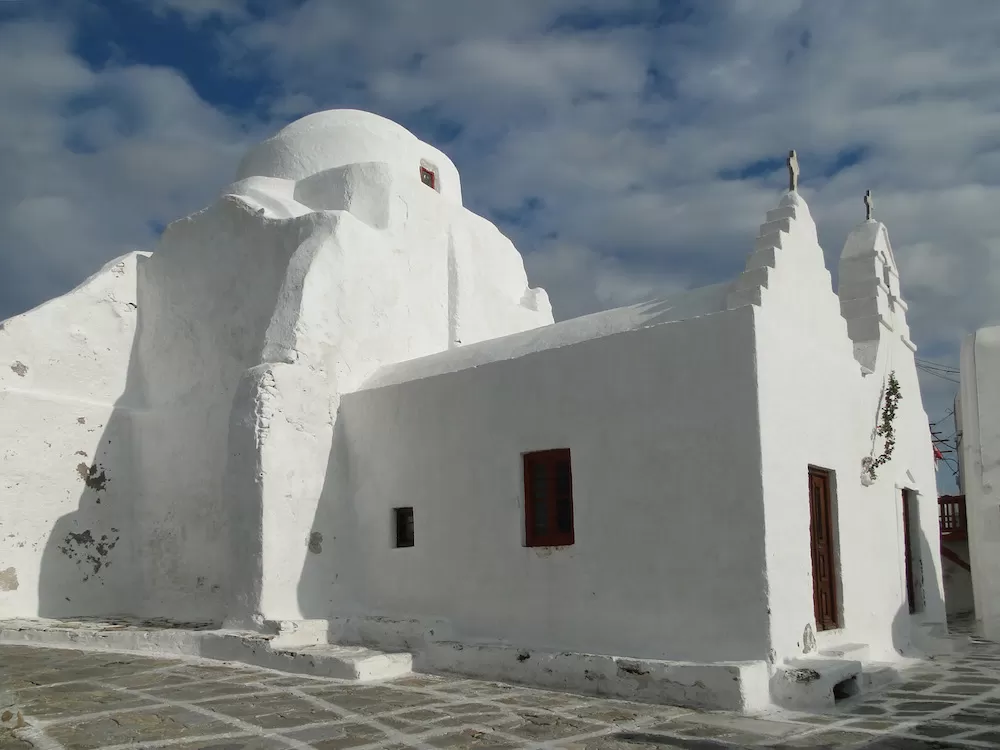
The locals here, as well as anyone who's ever been to Mykonos, will tell you that the Armenistis Lighthouse is a place you must visit. You haven’t truly gotten to know Mykonos if you don’t know this spot! Built back in the late 19th-century, it has literally stood the test of time. Especially since it's under the watchful eye of the Hellenic Navy Hydrographic Office. And because of that, it's also become quite the symbol for the island too. It is, after all, one of the first sights that fishermen, sailors, and other boats porting to the island will see. Not to mention the stunning view it offers at the top!
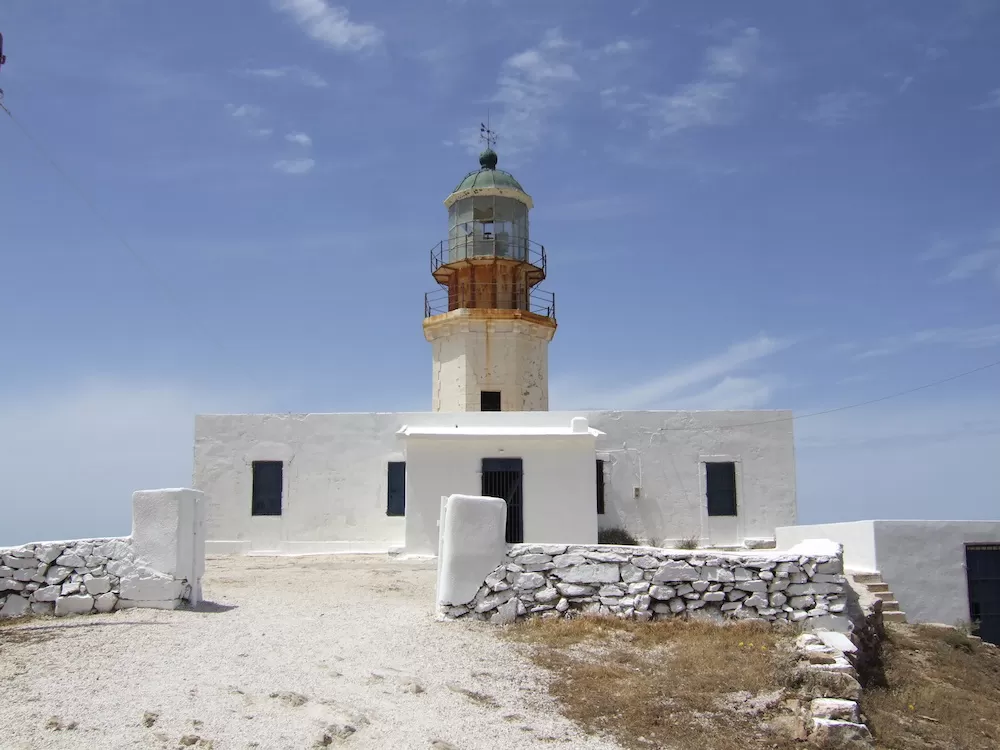
Source: Wikimedia Commons
When talking about the history of Mykonos, and of Greece in general, you're going to meet Manto Mavrogenous. Who is she? She was an aristocratic woman in the 19th-century who was integral in Greece's independence from the Ottoman Empire. Intelligent and highly educated, she was instrumental during the Greek War of Independence. Now, she is forever immortalized with a bust in the center of the square in Chora that's completely dedicated to her. So, the next time you enjoy another vacation in Mykonos, try to go and pay respect to the woman who helped make it possible for you to be there in the first place!
Anything 'ancient' that pertains to Greece is bound to be historic. But the ancient island of Delos, that's just near Mykonos, is also nothing short of breathtaking. The only way to get to this magical place is through the old port in Mykonos. And though this means leaving this beautiful island for a bit, don't worry! The trip is completely worth it. Said to be the birthplace of Apollo and Artemis, the whole island is filled with temples and shrines dedicated to the mythological gods. It also holds many ruins and remnants of the Bronze Age, a time when Greece was at its peak.
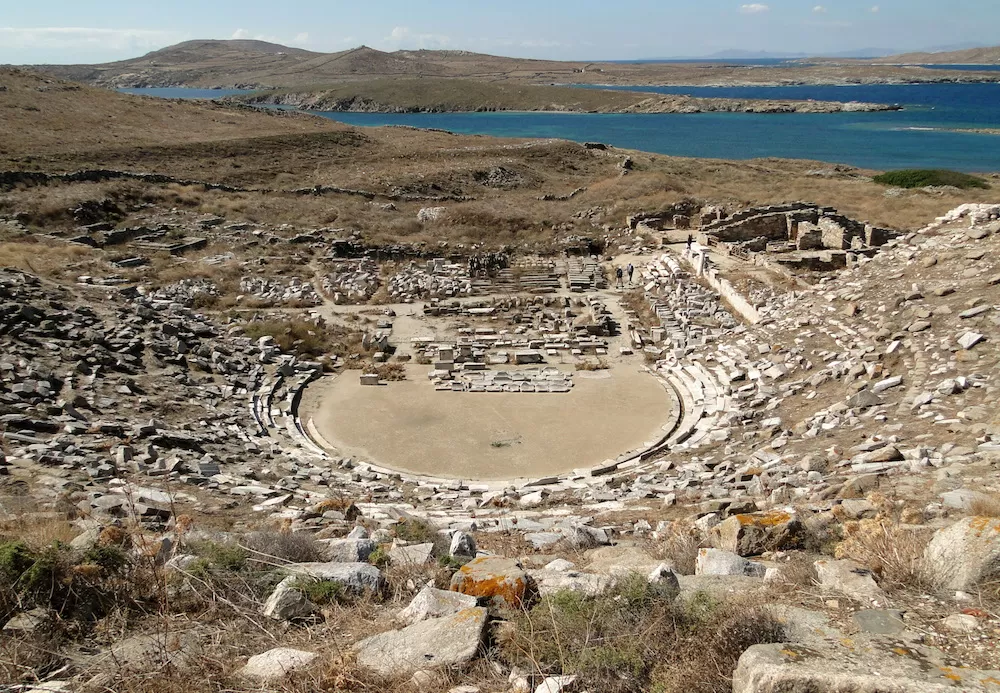
Source: Wikimedia Commons
What's so good about a couple of windmills? Well, this particular series of windmills in Mykonos holds a lot of history for the people of the island. For one thing, its unusual design is a symbol of the people's history for innovation, further proving that the world owes Greece a lot more than realized. Their unique design also does not look like your ordinary windmill. Many may argue that windmills are a dime a dozen, but these ones in Mykonos certainly are not. With their stark white bases and hut-like roofs, you won't see anything like them anywhere else!
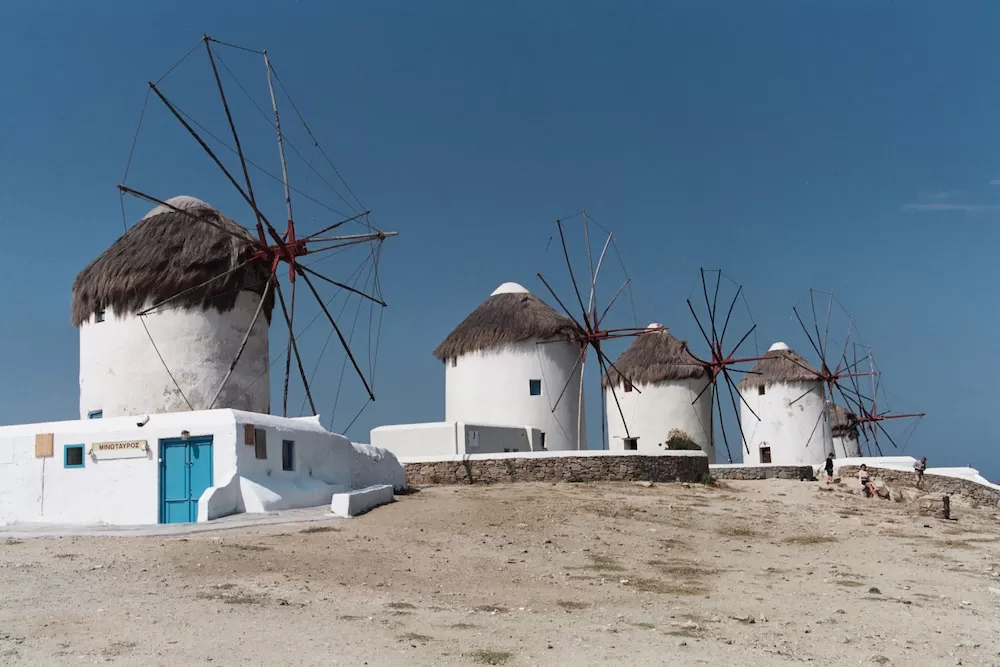
Source: Wikimedia Commons
Once upon a time, the village of Ano Mera was ruled by a Venetian family dynasty called Gyzi. For many years, the Gyzi clan acted as leaders of the area, very much like how other families of their stature would have in their home country of Italy. And to show off their power, they lived in a beautiful castle right off to the east of the center of Mykonos. Of course, after a couple of centuries, the castle no longer stands. But you can still see its ruins in the exact area where it once stood.
When you think of Greek churches, you probably think of stark white-domed temples up on hills. And that's probably because of the Church of Panagia Paraportiani. Not many people might not realize this but this particular church is one of the most photographed places in all of Greece. And, arguably, one of the most photographed churches in the world too. Its popularity might even rival those in Italy if only more people actually knew that the 'little Greek church' they've seen is this one.

Source: Wikimedia Commons
What is Greece generally full of? Ancient ruins. This is, after all, the country that housed one of the oldest civilizations that ever lived. And even in Mykonos, there are a lot of remnants of these past cultures and periods just waiting to be explored. Apart from the ancient island of Delos, there's also the ancient Ftelia. Dating all the way back to the Neolithic age of 5th millennium B.C., it ticks all the boxes for what you might find in such an area. It has tall pillars, ancient tombs, and guided tours for those who want to learn more about the place.
One of the biggest neighborhoods in all of Mykonos is the Ano Mera village. Here is another town that you should see while you're on the island. It's not only rich in historic sites, but it is also one itself. Dating back to the 13th-century, the town has had its fair share of historic events. Now, however, it remains a bustling Greek city where the culture is still as rich as ever. Though it's probably far from what it has gone through in the last few centuries, you could still feel that this city is intrinsically Greek!
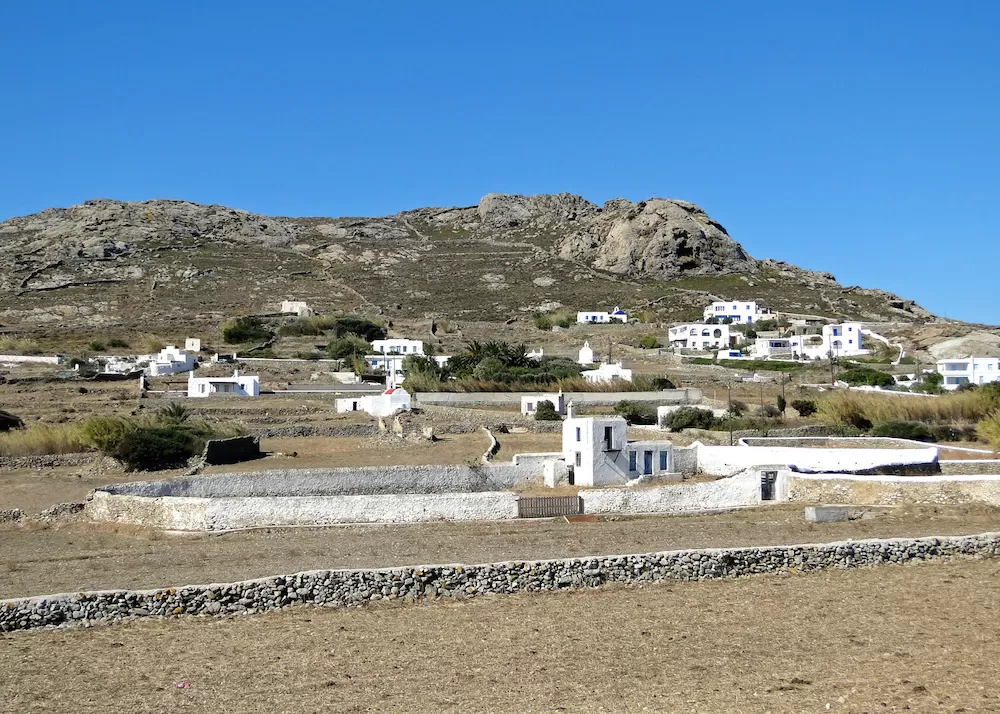
Source: Wikimedia Commons
Don't you just love it when certain historic cites have some superstitious value to them? And when you go to those sites, you sort of wish that the same superstitions were true? Well, one such spot is the collection of wells in the heart of Mykonos town. These three wells, all lined up perfectly in a row, are said to give good luck and fortune to those who'd drink the water from them. Some even believed that, if you were a young virgin woman who wants to find a husband, drinking the water would lead him right to you.
It's always so interesting to see little patches of other countries' influences in certain places. Here in Mykonos, there's actually a 'Little Venice' area. Though this "town" doesn't necessarily adhere to Venetian culture, per se, it's just that the houses here remind one of those in Venice. Beautiful balconies, symmetric architecture, and the likes. Though in Venice, such structures line up their famous canal, here, they line up the edge of the island, making it even more exciting to step unto the balcony.
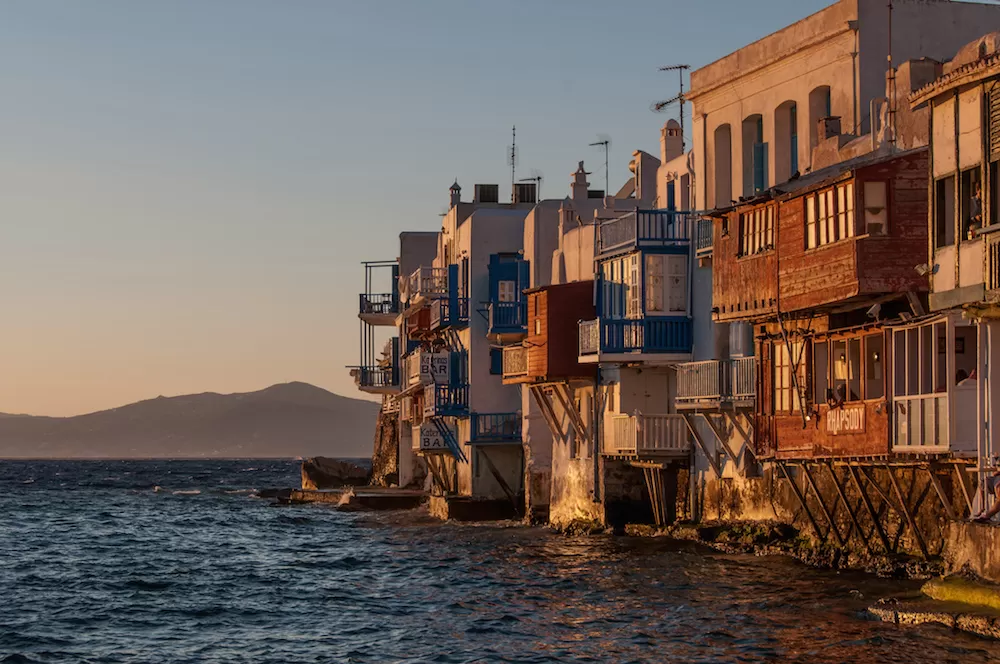
Source: Wikimedia Commons
Mykonos isn't just an island for leisure for a much-need summer vacation. It's also a great spot to learn about Greek culture, world history, and the like. If you're one to stimulate your mind even when you're on vacation, this place is definitely for you!